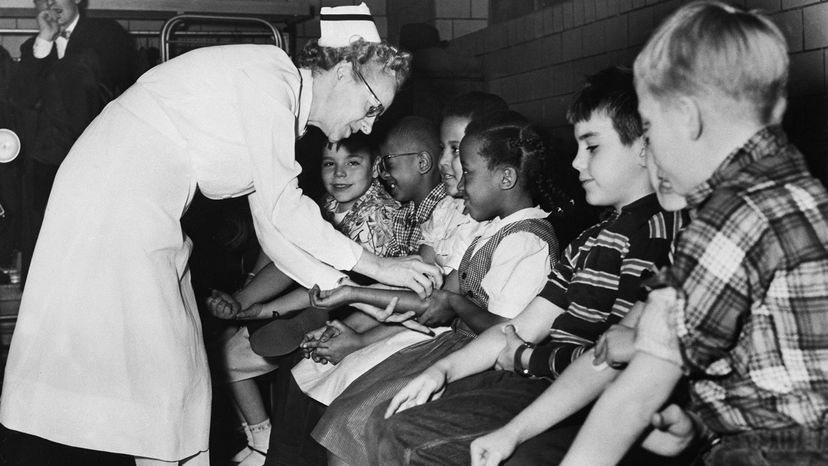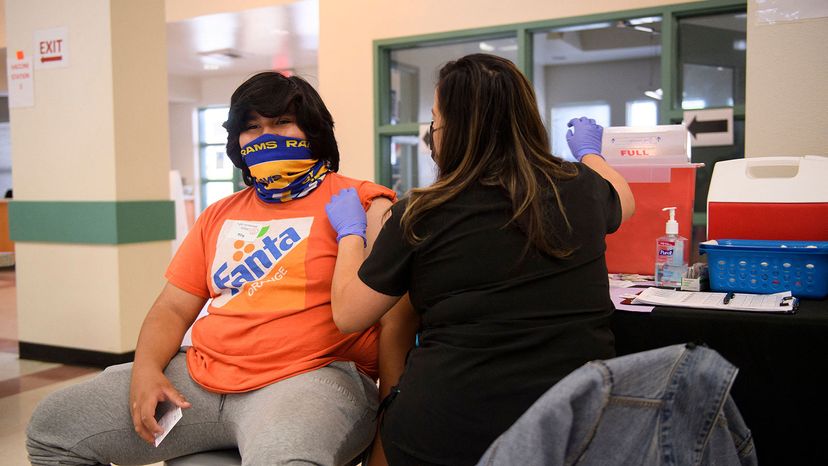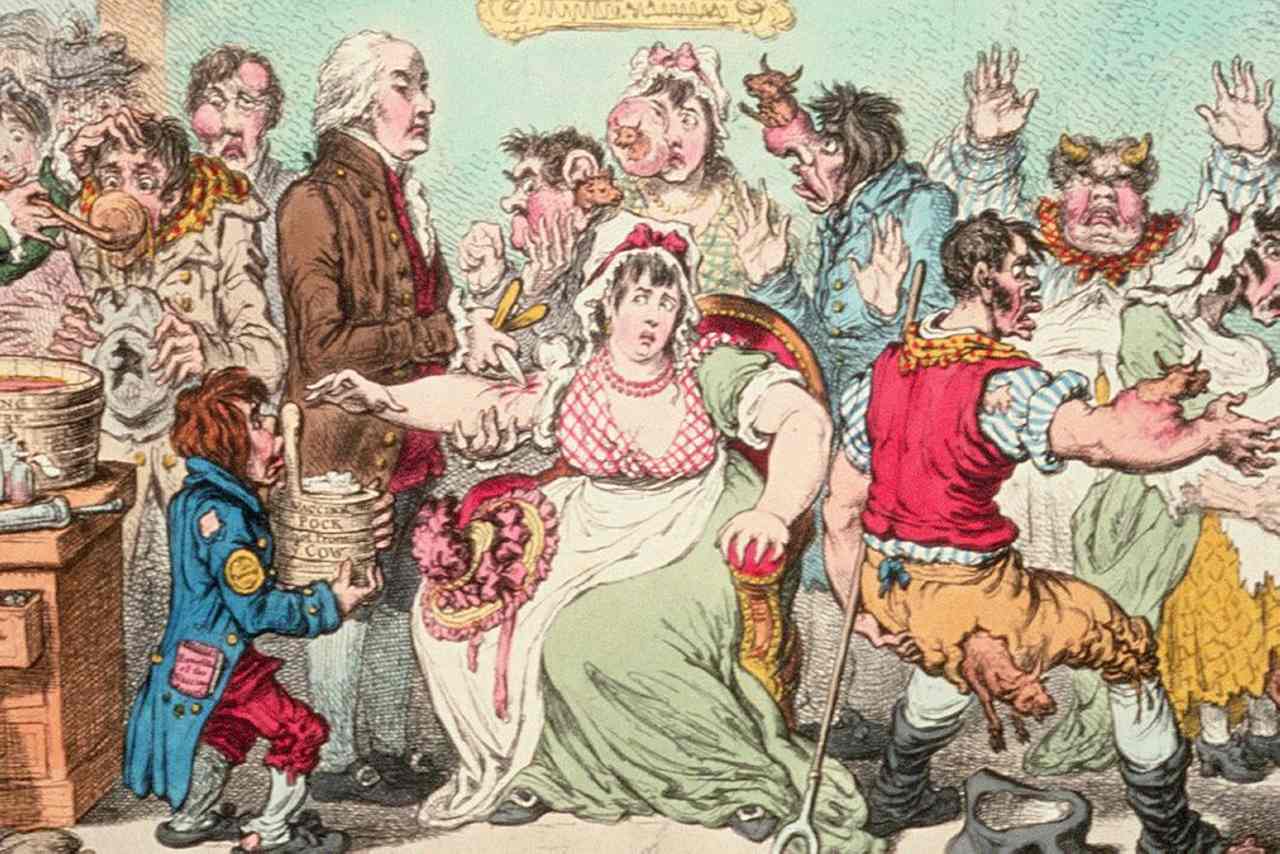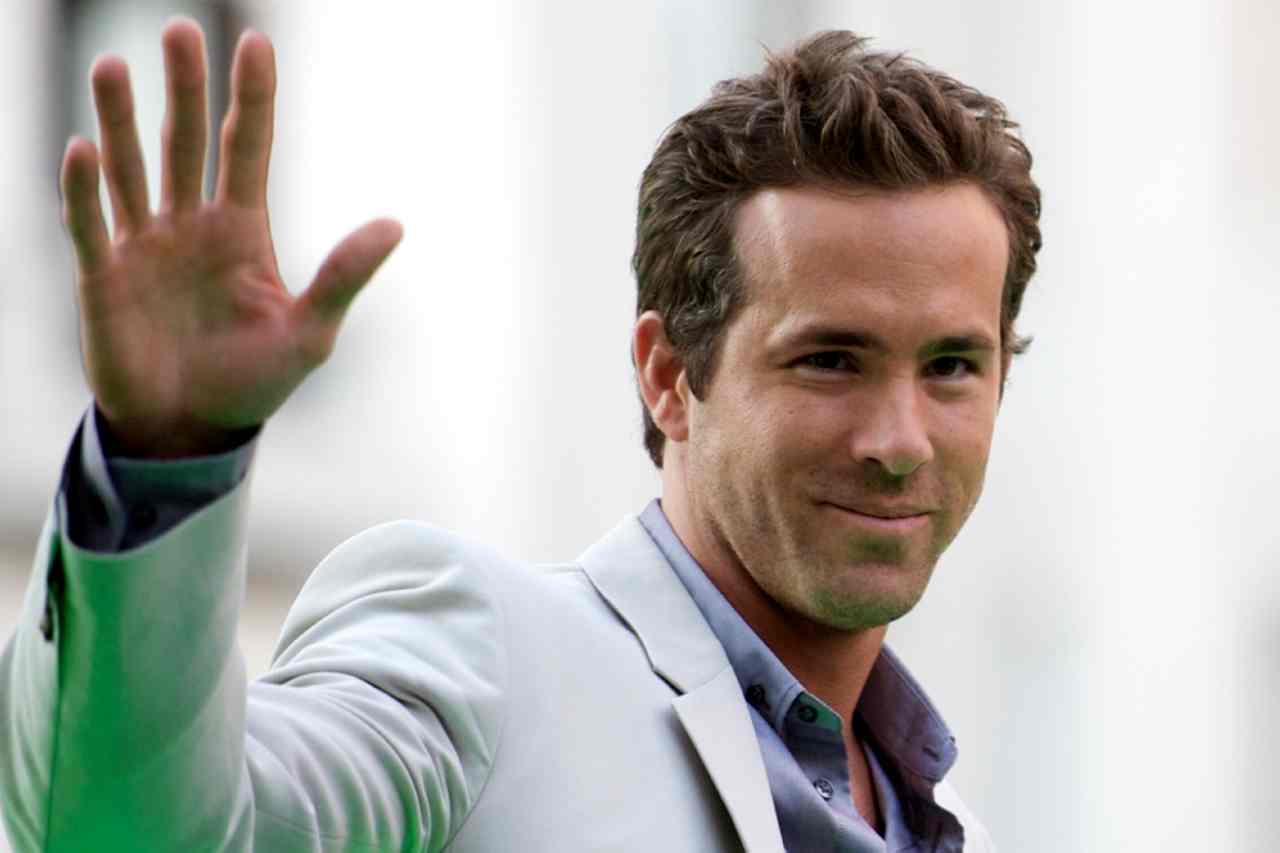No person likes to be sick, but it surely appears there are many people who find themselves keen to take an opportunity on a illness like COVID-19, as an alternative of getting a vaccine. Why is that? And is that this a brand new phenomenon? First, we now have to grasp the distinction between vaccine hesitancy and anti-vaccine activism (or vaccine resistance).
"Vaccine hesitancy and anti-vaccine activism are distinct and largely unrelated," explains Noel Brewer, Ph.D., professor of well being conduct on the College of North Carolina in an electronic mail. "Solely round 2 p.c of Individuals won’t ever get a vaccine, and amongst these onerous refusers solely a handful try and recruit others to their views."
By comparability, he says, most individuals have at the least some questions on vaccines, which isn’t a foul factor. "Vaccine hesitancy is regular and wholesome and ought to be inspired. It is good to have questions, ask them and get high-quality, reliable solutions," he says.
The vocal anti-vaccination motion is pretty latest and was actually kicked into gear in 1998 by a now-discredited paper that appeared within the medical journal Lancet linking vaccines and autism, says Brewer. Nonetheless, vaccine hesitancy is as outdated as vaccines themselves.
Contents
- Vaccine Hesitation By Historical past
- Why Vaccine Hesitation?
- Deal with Vaccine Hesitancy
Vaccine Hesitation By Historical past
"This has been happening for hundreds of years," says Dr. Kathryn Edwards, writer of an American Academy of Pediatrics scientific report "Countering Vaccine Hesitancy." She factors out that there was a cartoon revealed again in 1802 that depicts folks rising cow-like components. This was as a result of Edward Jenner pioneered the smallpox vaccine first utilizing materials from cowpox.
The primary smallpox vaccine "was met with enthusiasm but in addition dread," wrote medical historian Elena Conis in a 2015 article. "Whereas many sufferers and physicians have been desirous to fend off certainly one of that period’s most feared ailments, many others balked on the prospect of contaminating their wholesome our bodies with illness matter from an animal." And when European international locations started making smallpox vaccines obligatory within the early 1800s, "societies of anti-vaccinationists shaped to protest what they noticed as unequal remedy and undue infringement of particular person liberty."
However they did not get a lot traction. There was additionally little protest towards the polio vaccine, launched in 1954 to "wild enthusiasm" in America, based on Conis. "Mother and father so dreaded polio that they have been fast to hunt the vaccine for his or her youngsters, and coercive insurance policies by no means grew to become crucial," she wrote.
“
Bettmann/Getty Photographs
However because the many years went on, American dad and mom weren’t so enthusiastic about vaccinations for measles, mumps and different ailments, she famous. "Households lengthy accustomed to residing with measles, for instance, shrugged off the brand new vaccine towards the illness." Well being officers typically needed to make vaccinations obligatory for varsity registration to get compliance.
In 1982, a TV documentary referred to as "DPT: Vaccine Roulette" aired, that includes profiles of youngsters whose moms believed they have been harmed by the vaccine for diphtheria, whooping cough and tetanus, one of many first media coverages essential of vaccines. Then, the 1998 Lancet article linking the MMR (measles, mumps and rubella) vaccine and autism sparked the "anti-vaxxer" motion.
Quick ahead to 2021 and the brand new vaccination towards COVID-19. A whopping one-third of American adults are skeptical of getting it, based on the Related Press, a fairly large downside for these attempting to sluggish or cease the pandemic.
Why Vaccine Hesitation?
We have already established that vaccine hesitancy is regular, even wholesome. However why does it occur? The explanations are threefold, based on Edwards.
1. Folks do not assume the illness is that dangerous, subsequently it does not should be prevented. "One of many points that make vaccine hesitancy extra frequent previous to COVID is that lots of the infectious ailments that folks dreaded for his or her youngsters have been eradicated," Edwards explains, noting that extreme chickenpox, mumps and different once-devastating sicknesses are far rarer than they was once, due to vaccines. When it comes to COVID, worry ranges are inclined to run a variety of regular, with some folks afraid of the virus and others completely unconcerned. "Many individuals who do not need to get the vaccine are much less afraid of getting COVID than those that get [the vaccine]," she explains.
Of explicit affect to this facet of vaccine hesitancy is the media, says Edwards. "Some could be very science-based, others should not," she notes. "An web website does not include a ranking of whether or not it is primarily based on truth or not."
2. They’re anxious in regards to the security of the vaccine. This can be a huge one for the COVID-19 vaccine; because it was developed so rapidly, lots of people assume that it may’t presumably be protected sufficient to make use of. (In actuality, scientists had been coping with different coronaviruses like SARS and MERS for many years which gave them a head begin in vaccine growth.) Though vaccine hesitancy is frequent amongst folks of all demographics, minority populations are particularly skeptical as a result of many mistrust the medical system. Consider the notorious Tuskegee Syphilis Research.
3. Individualism is vital. Most individuals do not prefer to be informed what to do, even when it is of their finest pursuits. They need to "resolve for myself if I get vaccinated, whether or not I put on masks, if I am going out or quarantine," Dr. Edwards says. "It is the sense of desirous to be a person and having particular person rights."
Deal with Vaccine Hesitancy
For what it is price, vaccination charges are nonetheless excessive within the U.S., with 91.5 p.c of youngsters aged 19-35 months absolutely vaccinated towards measles, mumps and rubella as of 2017. That is an all-time excessive, with the bottom fee since 1994, occurring not-so-coincidentally in 1998 (86 p.c) when the fraudulent MMR vaccine/autism examine was launched.
Nonetheless, there’s not prone to be a magic remedy to eradicate vaccine hesitancy anytime quickly. "We do not have a lot proof that interventions to lower hesitancy can improve vaccine uptake. Such interventions have been unreliably efficient," Brewer says. "That mentioned, one of the best ways to handle hesitancy is to have an individual speak with their healthcare supplier. A supplier advice is the one greatest motivator of vaccination."
“
PATRICK T. FALLON/AFP by way of Getty Photographs
So, as an example a buddy mentions that they are scared to get a sure vaccine, whether or not for themself or a toddler. The worst factor you are able to do is inform them they’re silly or unilaterally discredit their issues. As a substitute, discover out why they’re involved. Is it as a result of uncomfortable side effects? Fears about huge pharma? Potential long-term issues?
Validate their emotions by listening and taking them significantly. Then counsel that they go to some respected websites (with you or on their very own) to get credible solutions to their questions. A couple of that Edwards suggests are the CDC, AAP and the Nationwide Institutes of Well being vaccine data portals. "There is a wealth of knowledge to take a look at that may reply questions, so long as it is a supply that’s linked to science," she says. (The American Academy of Household Physicians web site additionally has an intensive rationalization of COVID-19 vaccine myths and information.)
Lastly, as Brewer says, counsel a frank dialog with their physician to seek out out why the vaccine is really helpful, if there are any dangers and what the uncomfortable side effects is perhaps. More often than not, a easy dialog with a educated particular person will allay fears. "Actually, I need my sufferers to grasp what they’re receiving and the way it works. I additionally need them to know that they might expertise uncomfortable side effects that I can inform them about," Edwards says.
Now That is Necessary
Questioning how vaccines get the job finished? Try this video on the science of stimulating an immune response.
Initially Printed: Might 17, 2021







